- Owings Mills: (443) 394-9222
- Marriottsville: (443) 545-5566
Menu
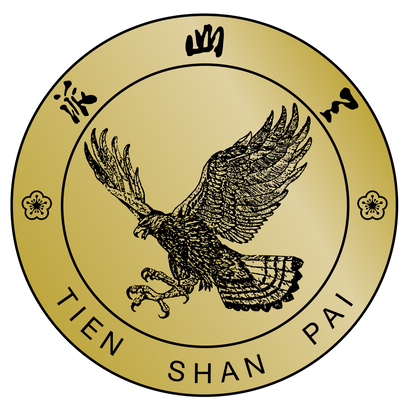
Nutrition for Karate: Fueling Your Training and Recovery
March 08, 2024 3 min read

Excellence in karate training goes well beyond mastering katas or perfecting the art of striking. The fuel you provide your body significantly impacts performance, injury and recovery rates, and overall endurance. Good nutrition is central to karate athletes because of the intensive physical demands it imposes on their bodies.
Here's to exploring this crucial aspect that can significantly elevate your arts training.
The Integral Triad: Carbohydrates, Proteins, and Fats
At the core of any effective nutritional strategy are three macronutrients that every athlete needs – carbohydrates, proteins, and fats.
- Carbohydrates: They are your primary energy source during high-intensity workouts. When you consume carbs, your body breaks them down into glucose - a form of sugar - which powers your muscles during rigorous training sessions or bouts.
- Proteins: Protein intake is critical for muscle repair and growth after a strenuous workout or a match. It plays an essential role in maintaining lean body mass (muscle tissue), which aids in strength building.
- Fats: Contrary to popular belief, not all fats are harmful. Healthy fatty acids like Omega 3s play an essential role as secondary energy sources and assist in vitamin absorption.
Balancing these three elements as per your karate regime’s intensity helps maintain high energy levels while enhancing recovery post-training.
Pre-Workout Nutrition: Energy Loading Strategies
The goal here is simple – maximize glycogen stores to ensure optimal energy reserves for impending workouts:
- Time Your Intake Right: A full meal containing protein, carbohydrates, and healthy fats should ideally be taken about 2 to 4 hours pre-workout.
- Carbs are King: Emphasis should be on low fiber complex carbohydrates like whole grains for sustained release.
These strategies help prevent fatigue by keeping blood sugar levels steady throughout the session.
During Workout Hydration: Staying Fluid
Stay hydrated, stay ahead! Water plays a multifaceted role in an athlete's body - temperature regulation, lubrication of joints and improved cardiovascular functionality. Personal hydration needs might vary, but it’s wise to drink 250-500ml of water about 15 minutes before training begins.
Post Work-Out Recovery: Healing and Reinforcing
The phase after intense karate training aims at replenishing the glycogen stores while aiding muscle tissue rebuilding:
- Protein-Carb Combo: A post-workout meal taken within 45 minutes should focus on proteins to repair and carbs to replenish energy stores.
- The Magic Ratio: Ideally, maintain a 3:1 ratio for Carbs to Proteins in the post-training meal for maximum recovery benefits.
Micronutrients and Supplements : Boosters for Performance
While macronutrients form the diet's core, several vitamins and minerals enhance digestion, muscle contraction, and overall performance:
Notable Vitamins: Vitamin D (bone health), vitamin C (immune function), B vitamins (energy production).
Essential Minerals: Iron (oxygen transportation), Calcium (bone health), Zinc (healing).
As supplements can offer concentrated nutrition value without adding extra bulk to meals, they’ve become increasingly popular among athletes. Be it boosting iron levels or getting a quick protein fix with whey powder; consult a healthcare professional before starting any supplement regimen.
Align Your Nutritional Goals with the U.S Kuo Shu Academy
Training your body is as much about feeding it right as working it hard—integrate strategic nutrition habits into your routine with the U.S Kuo Shu Academy’s disciplined approach to karate training in Owings Mills, MD.
At U.S Kuo Shu Academy, the objective goes beyond creating champions; we aim at evolving complete athletes who excel mentally, physically, and spiritually through structured training coupled with scientific nutritional guidance. Come, join us on a journey that teaches karate and the art of healthy living for a balanced, successful existence. Whether you aim at that world-class black sash or peak fitness levels, we're here to guide your path to excellence.
What Others Say About us!
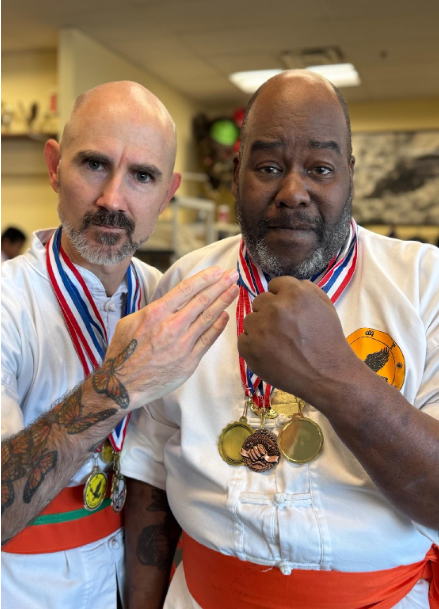
One of the Finest Chinese Martial Arts Schools in the Country
Some of the best competitors and teachers that I've ever met come from this fine school. It has a tradition of excellence in all they do. Grandmaster Huang, Chien-Liang and the US Kuo Shu Academy build champions with integrity.
Nelson Ferriera
Master Instructor for Zhong Yi Kung Fu Association
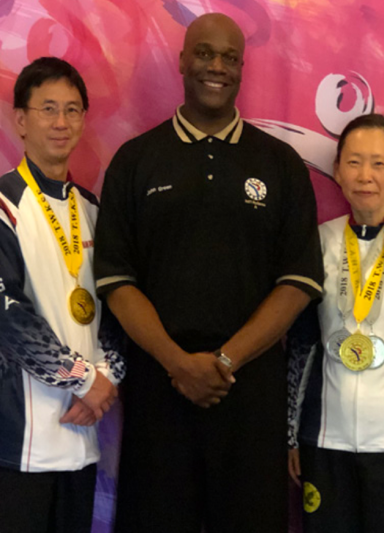
The School has Transformed my Life.
The school has transformed my life and made me a better man body and soul. It's really special to witness the transformation of the the youth at the school as well. The staff at the school really care about the students and each other. This is all so vital to our youth for they are the future of things to come.
Bruce Seward
Logistics Specialist
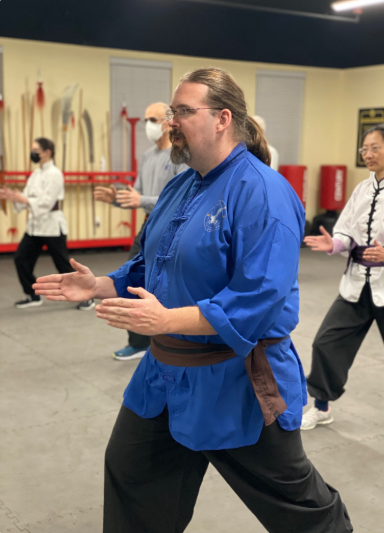
USKSA is not just a Chinese martial arts school, it’s a lifestyle
How lucky it was, that we stopped by USKSA. Instantly it becomes an irreplaceable part of life. And not just for my daughter, mine as well, since I became a student too. USKSA is not just a Chinese martial arts school, it is a lifestyle. It is a family. The school changed my life I can proudly say: I am a better person now, stronger (mentally and physically), even happier than I've been before I joined the USKSA. There is not enough good words to say. Thank you.
Alex Reznikov
Engineer at Alleviation Institute, LLC
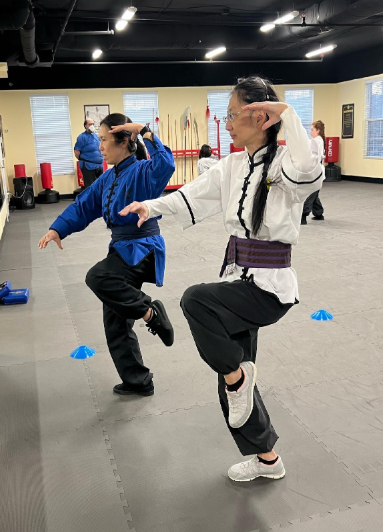
I am learning how to be a Better Person
I am proud to study at US Kuo Shu Academy for Three Main Reasons. The instructors provide superior quality teaching and have in-depth knowledge of martial arts principles The genuine passion for teaching authentic martial arts, The sincere attitude that permeates every class that I am not just learning how to be a better martial artist, I am learning how to be a better person.
Steve Smith
Owner of Mindful Healing Acupuncture
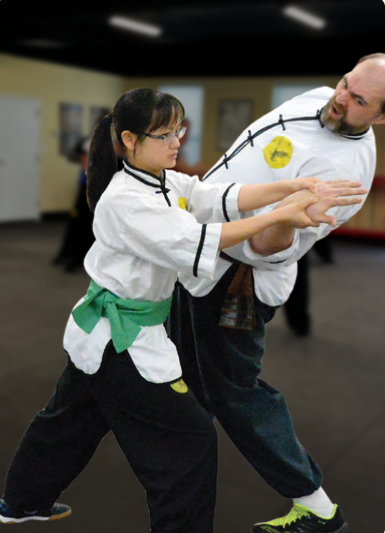
Made me healthier physically and mentally and more focused & organized at work
It has helped me keep my sanity! Made me healthier physically and mentally and more focused and organized at work. I am a better person, writer, and mother because of my experiences at USKSA. And it's been the "village" that has helped my sons learn about values and character and hard work. If you want to change your life for the better, if you want to give your children tools...then this is the place.
Xylia Hall
Accountant at CareFirst
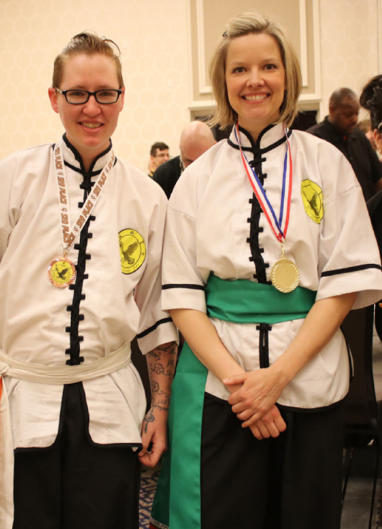
Nothing Short of Amazing
The US Kuo Shu Academy is an amazing, traditional martial arts school with stellar instructors and an incredibly well-developed curriculum. My experience there - both at Owings Mills and in Marriottsville - has been nothing short of amazing. The Tai Chi program provides an incredibly layered experience that combines both the meditative/health aspects of Tai Chi, along with the martial aspects of the form. They truly care about their students, and provide expertise and support in an environment that is both caring and rigorous. Whether your interest in Tai Chi or Kung Fu, meditation or martial practice, this is the place to be.
Margaret Boas
Professor at Anne Arundel Community College
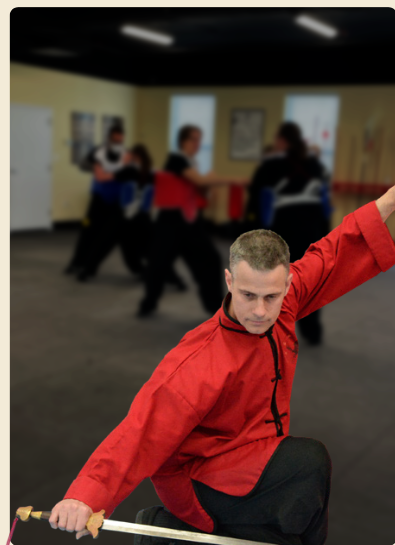
I’ve gained a sense of self-confidence I had never realized
My association with this system began 7 years ago. My only goal at the time was to have a form of exercise in my life that didn't bore me. I was very overweight and was in desperate needs of getting in shape. In addition to helping me lose over 100 lbs, I've gained a sense of self-confidence I had never realized was missing from my life. I've made friendships that will last the rest of my life. I've been mentored by some amazing people, and I've had the great honor to mentor some amazing people.
Jeramy Hansen
Scientist at Johns Hopkins University Applied Physics Laboratory
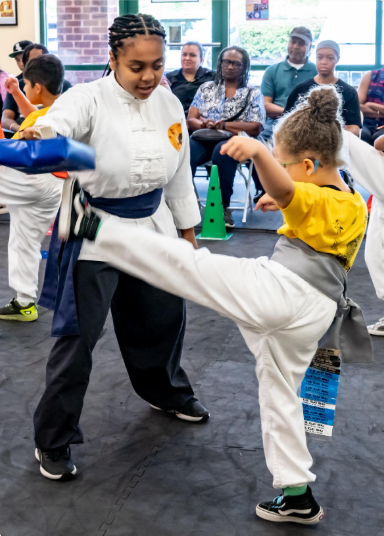
I’ve gained a sense of self-confidence I had never realized
My association with this system began 7 years ago. My only goal at the time was to have a form of exercise in my life that didn't bore me. I was very overweight and was in desperate needs of getting in shape. In addition to helping me lose over 100 lbs, I've gained a sense of self-confidence I had never realized was missing from my life. I've made friendships that will last the rest of my life. I've been mentored by some amazing people, and I've had the great honor to mentor some amazing people. Joining US Kuo Shu Academy was one of the best decisions I've ever made.
Jeramy Hansen
Scientist at Johns Hopkins University Applied Physics Laboratory
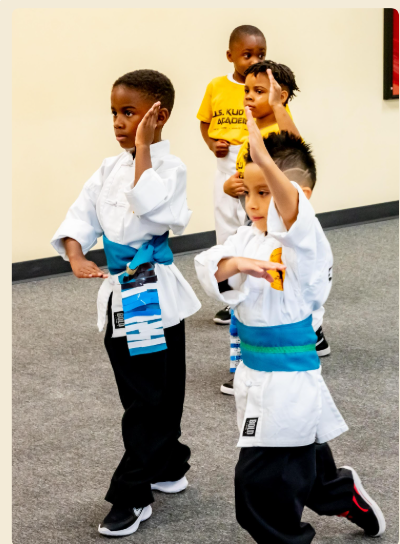
Nothing Short of Amazing
The US Kuo Shu Academy is an amazing, traditional martial arts school with stellar instructors and an incredibly well-developed curriculum. My experience there - both at Owings Mills and in Marriottsville - has been nothing short of amazing. The Tai Chi program provides an incredibly layered experience that combines both the meditative/health aspects of Tai Chi, along with the martial aspects of the form. They truly care about their students, and provide expertise and support in an environment that is both caring and rigorous. Whether your interest in Tai Chi or Kung Fu, meditation or martial practice, this is the place to be.
Margaret Boas
Professor at Anne Arundel Community College
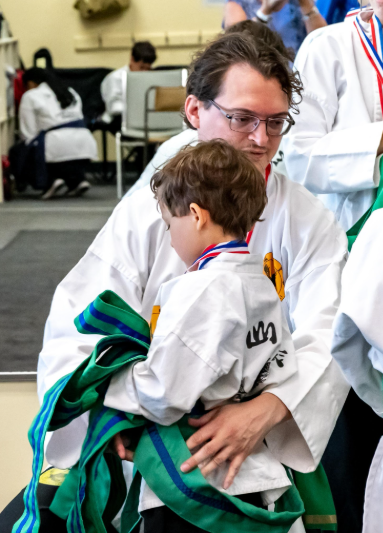
I am learning how to be a Better Person
I am proud to study at US Kuo Shu Academy for Three Main Reasons. The instructors provide superior quality teaching and have in-depth knowledge of martial arts principles The genuine passion for teaching authentic martial arts, The sincere attitude that permeates every class that I am not just learning how to be a better martial artist, I am learning how to be a better person.
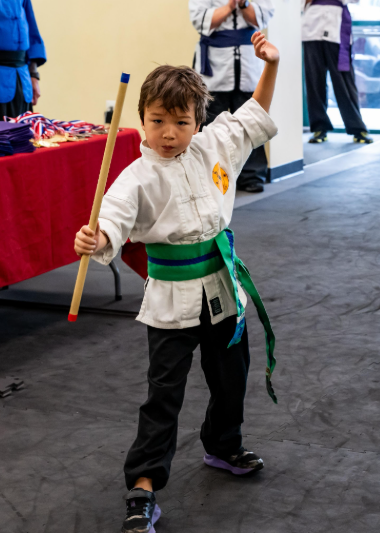
USKSA is not just a Chinese martial arts school, it’s a lifestyle
How lucky it was, that we stopped by USKSA. Instantly it becomes an irreplaceable part of life. And not just for my daughter, mine as well, since I became a student too. USKSA is not just a Chinese martial arts school, it is a lifestyle. It is a family. The school changed my life I can proudly say: I am a better person now, stronger (mentally and physically), even happier than I've been before I joined the USKSA. There is not enough good words to say. Thank you.
Alex Reznikov
Engineer at Alleviation Institute, LLC
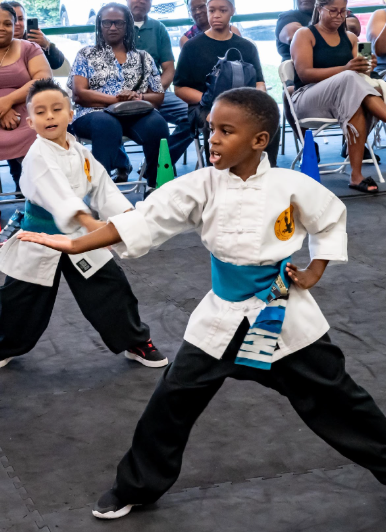
The School has Transformed my Life
The school has transformed my life and made me a better man body and soul. It's really special to witness the transformation of the the youth at the school as well. The staff at the school really care about the students and each other. This is all so vital to our youth for they are the future of things to come.
Bruce Seward
Logistics Specialist

One of the Finest Chinese Martial Arts Schools in the Country
Some of the best competitors and teachers that I've ever met come from this fine school. It has a tradition of excellence in all they do. Grandmaster Huang, Chien-Liang and the US Kuo Shu Academy build champions with integrity.
Nelson Ferriera
Master Instructor for Zhong Yi Kung Fu Association
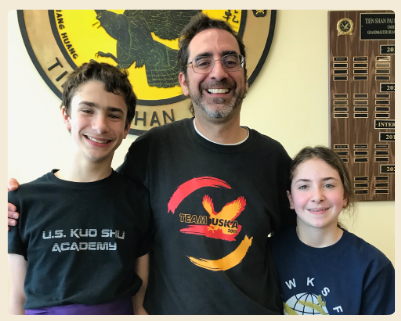
The Best School of Martial Arts
My children have been students for more than 4 years now and they love this school of martial arts. US Kuo Shu Academy is their second home, learning not just Kung Fu but also developing one’s character as a good, responsible, respectful and disciplined citizen. Thank you very much Grandmaster Huang. Master Michael Hung and all the teachers and students for making this place the best school of martial arts.
Irvin Lee
Parent of two at USKSA
Martial Arts for Children & Adults
SIGN UP FOR FREE LESSON
No Experience Necessary